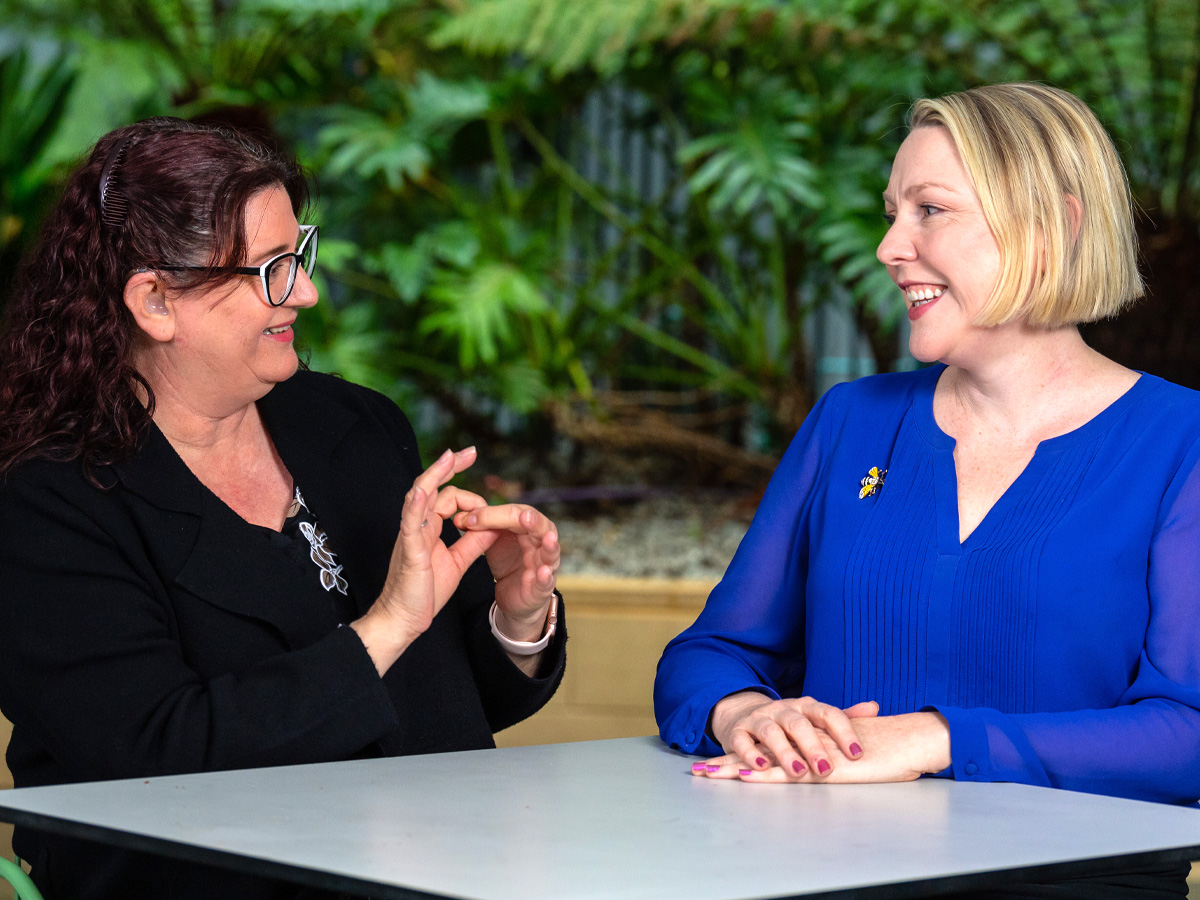An Australian-first innovative training program designed to make healthcare more accessible and inclusive for the deaf or hearing-impaired is being rolled out in one of Adelaide’s key hospital networks. It is intended to address the barriers facing the deaf community throughout the health care system and debunk the myths around providing adequate care through real-life scenarios.
Deaf Connect, which is now operating services and programs formerly developed by Deaf Can:Do, has partnered with Central Adelaide Local Health Network (CALHN) to deliver the online staff training program, Deaf Awareness, to educate healthcare workers better understand the needs of the deaf and hearing impaired.
Deaf Connect CEO Brett Casey said the deaf and hard of hearing community faces challenges when it comes to accessing healthcare globally. “Medical teams are doing the best they can often in a high-pressure environment, and this has only been exacerbated in recent years by Covid. We have worked closely with healthcare staff and community focus groups to identify gaps in communication in healthcare provision and provide solutions to create better health outcomes for deaf Australians.”
He said when communicating with the deaf community it was critical to quickly ascertain which is the best communication strategy to use, based on the individual’s preference. This may involve booking an Auslan interpreter, or using a mix of visual aids, lip reading, gesturing or written notes, and this becomes particularly important in a hospital setting.
“Through this training we hope to see hospital staff better equipped to ask questions such as communication preference and provide a consistent level of care to all Australians,” Casey said.
According to CALHN allied health acting executive director Anna McClure, the partnership with Deaf Connect aims to deliver health services that are more accessible for and inclusive of deaf and hard of hearing individuals “These training modules provide practical advice to clinicians in their patient assessment and care. All patients have the right to make decisions regarding their own health and this training provides our teams with a tool kit to better communicate and understand the needs of its patients who are deaf or hard of hearing,” she said.
CALHN staff are being encouraged to undertake the Deaf Awareness training course, as part of their Cultural Awareness, Diversity & Inclusion Program training in the Learning Management System (LMS).
Tips for communicating to the deaf or hard of hearing community*:
• Ask individuals their preferred communication method
• Face towards individual to communicate
• Use a combination of visual aids, lip reading, gesturing and written
notes
• Book an Auslan interpreter if required.
*Source: Deaf Connect, a NDIS service provider.

